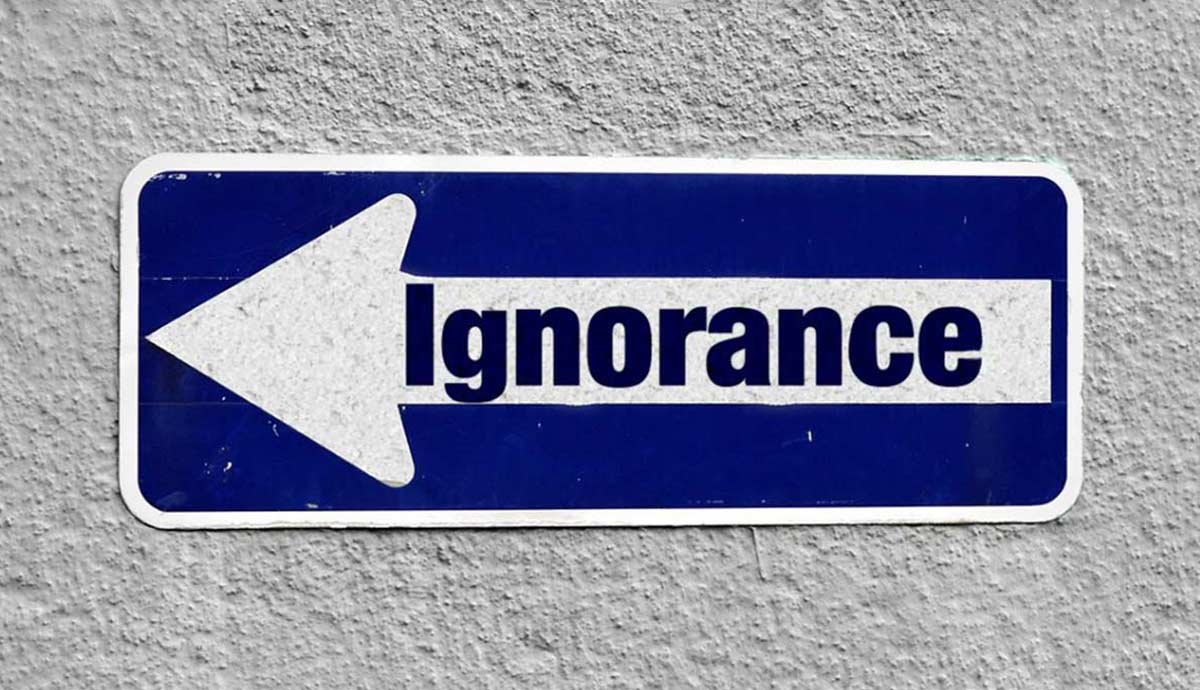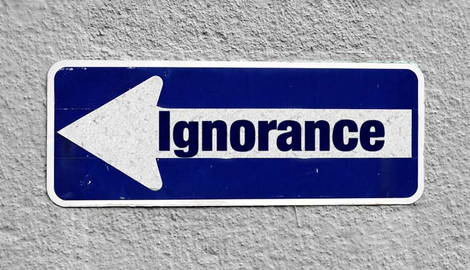
If you tell someone ‘You are ignorant!’, they would definitely get offended. Ignorance is so drenched in negative connotations that it becomes an insult. Certainly, ignorance is a quality that we do not wish to have. We assume that ignorance is a deficiency of character, a synonym for stupidity, and an attack on our cognitive powers. Many great thinkers, however, would disagree.
What Is Ignorance?

The word ignorance originates from the Latin word ignorantia, conjoining the root gnoscere (i.e. to know) and the prefix in- (i.e. not or without). Stripped away from its connotations, ignorance is a word that simply denotes a state of unknowing or an absence of knowledge. Historically, the absence of knowledge has been culturally condemned. Knowledge is power, a means of control, a pillar of stability, the light of understanding, and the pearl of wisdom. It’s obvious why ignorance has long been rebuked, for it seems to deny us all the gifts that knowledge can offer. Perhaps, however, the line between knowledge and ignorance has been too strictly defined. In fear of losing the gifts of knowledge, we’ve lost sight of the gifts that ignorance can offer us.
The Gift of An Empty Pot

Idries Shah narrates a tale of Saadi in Learning How to Learn about a man who approached a revered teacher and asked him for knowledge. The teacher, to his surprise, refused to teach him anything, saying “You may think yourself wise, but nothing can be put into a full pot”. Paradoxically, knowledge is a hindrance to the pursuit of knowledge. When we knock at the door of knowledge with an inquiry, we cannot enter without leaving our presumptions outside. Otherwise, we’re left with mere reproductions and elaborations of our preexisting assumptions, without gaining any original insight that makes our pursuit worthwhile. We can only gain knowledge when we are in a state of ignorance, a state of utter unknowing, or an empty ‘pot’, as Saadi puts it.
Between Knowledge and Ignorance

The connection between knowledge and ignorance is obvious. We cannot gain knowledge of something we already know, but necessarily of something we are ignorant about. Knowledge presupposes ignorance. While this is commonsensical, it is not always easy to realize. We tend to deny our ignorance, not only because we perceive ignorance as a personal deficiency, but because ignorance is a vulnerability.
When we believe we know something, we feel safe. We can manipulate and control what we know, fostering a sense of stability and security, however elusive they may be. On the other hand, admitting ignorance entails confronting our deep-rooted fear of the unknown. It is a leap, as it were, into an obscure territory, where we must confront the darkness of unknowing to attain the light of knowing. Ignorance is the price of knowledge, but paying it requires great courage.
How to Pay the Price

In the introduction to his commentary on Aristotle’s De Anima, Eugene Gendlin writes that the greatest challenge in understanding a text is that “our own thought is already structured and directed by many assumptions which we are not aware of making” and to which “we cannot imagine other alternatives”. From the lens of our own assumptions, many passages from the works of distinguished philosophers such as Aristotle may seem like an obvious mistake or contradiction.
Many great works remain sealed from our comprehension for that reason. However, when we relinquish what we assume we know we discover, as Gendlin notes, that “the text says what it says quite plainly”. What seemed indecipherable at first, becomes simple and straightforward. If we are to access any knowledge, we must be willing to forgo everything we think we know. This doesn’t mean we forget these assumptions, but that we simply let go of our attachments to them as truths.

Ignorance is the remedy to the mental rigidity that hinders our pursuit of knowledge. To be ignorant is to be in a state of openness and receptivity that allows us the necessary mental flexibility to learn. Paradoxically, to live without knowledge is the right attitude to maintain as a seeker of knowledge, which is why Socrates famously says: “All I know is that I know nothing”.










